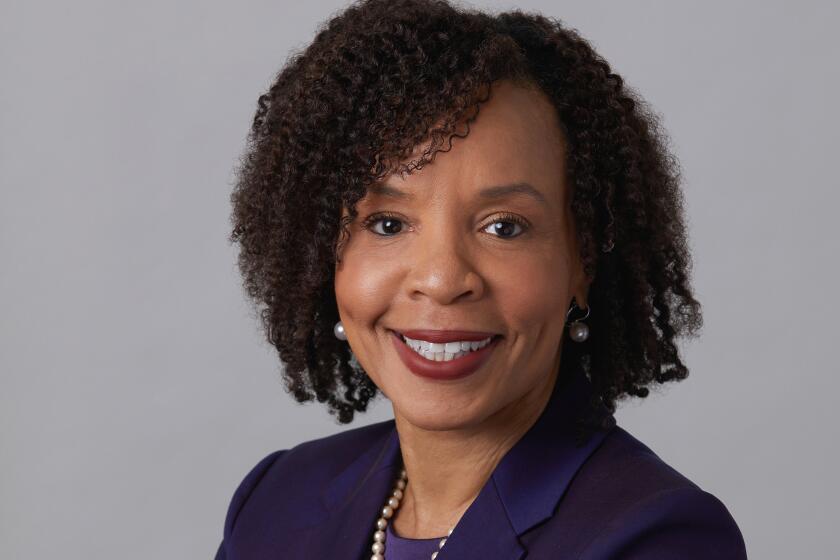Nation appears poised for midterm change
Change is coming Nov. 2.
But not the kind that ascendant Democrats might have envisioned two years ago, or the sort that necessarily translates into long-term Republican gains.
Barack Obama was elected in 2008 with the strongest showing by a Democratic presidential candidate in nearly 50 years. His approval reached 80% a month into office. Since then, despite a series of sweeping and historic legislative victories, little has gone right politically for the president or his party.
Today, more than half of those surveyed are unhappy with Obama and — if the abundance of polling and the collective wisdom of pundits can be believed — Democrats are poised to lose control of the House of Representatives, a majority of governorships and possibly the Senate.
Republicans need a gain of 39 seats to win the House and 10 to take over the Senate.
Even in their most optimistic calculations, Democrats privately acknowledge they will probably lose more than 20 House seats, which is significant: It would be the third straight election with at least 20 seats changing hands, the first time that has happened in more than half a century.
The likely turnover underscores the volatility of today’s politics, a churn driven by heightened expectations and the hair-trigger judgment of an electorate gorging on a 24/7 diet of news, opinion and a partisan blending of the two. Add in the steepest economic decline since the Great Depression and it is little wonder that Democrats’ hold on the public faith has proved so fleeting.
“It used to be that people gave our politicians a chance to straighten things out and understood that government generally responds slowly,” said Stuart Rothenberg, a 30-year student of national politics and a nonpartisan handicapper of elections across the country. “The MTV generation is sufficiently large, and they expect change not just today — they expect change yesterday.”
Midterm elections are typically a referendum on the party in the White House, and try as the Democrats have to change the focus — to Wall Street, insurance companies, BP, House Republican leader John A. Boehner of Ohio — this one is no different. The economy, as ever, is key; few things focus a voter’s mind like a thin wallet.
Unfortunately for the majority party, unemployment is close to 10%, the second-highest jobless rate for any midterm in the last 50 years. (The rate was nearly 11% in 1982, when Republicans lost 26 House seats under President Reagan.)
Democrats feel voters’ pain. The industrial Midwest, a perennial battleground, looms as a major disaster area for the party, which could surrender the governor’s mansions and a dozen or so congressional seats in Ohio, Michigan, Illinois and Wisconsin alone.
Unlike past downturns, though, this one lasted longer than most and hit people less accustomed to the down side of the boom-and-bust cycle. In the Great Recession, the over-leveraged suburban tract home has replaced the shuttered Rust Belt factory as a symbol of the nation’s woes, and sun-kissed states like Arizona, Florida and Nevada have been uncharacteristically reeling.
The latter surged for so long that people there didn’t even know what slow growth, much less a recession, felt like. Today, Nevada is the foreclosure capital of the country and Democrats are scrambling to salvage a Las Vegas House seat and save their Senate leader, Harry Reid.
Reid is in a close fight with Republican Sharron Angle, who remains competitive despite her near-daily campaign flubs. (Recently, she was caught on tape trying to talk a third-party rival into quitting the race to avoid splitting anti-Reid sentiment, promising once she gets to Washington, “Whatever juice I have, you have as well.”)
Angle, in her fumbling success, represents one of the most significant developments of this political season: the rise of the “tea party” movement, which started as a conservative protest against Obama’s expansive policies and quickly transformed into a major force within the Republican Party.
The loosely knit anti-tax, anti-spending, anti-Washington alliance humbled the GOP establishment in half a dozen Senate contests, pushing favorites like Angle, Kentucky’s Rand Paul, Alaska’s Joe Miller and Colorado’s Ken Buck to improbable victories over candidates with more money, more political experience, better name recognition and sometimes all three. If anything, those insider credentials proved more burdensome than beneficial.
The general election has turned rocky for each of the newcomers, as they face increased scrutiny for such controversial stances as questioning the 1964 Civil Rights Act (Paul), challenging the separation of church and state (Buck and Angle), crusading against masturbation ( Delaware’s Christine O’Donnell) and declaring unemployment compensation to be unconstitutional (Miller). That said, all five could quite possibly be elected on Nov. 2. ( Utah’s Mike Lee, who bested three-term incumbent Sen. Robert F. Bennett at a state nominating convention, is considered a shoo-in.)
Win or lose, the tea party won’t be losing steam anytime soon. Rather, the classic debate — insider versus outsider, purity versus pragmatism — will likely dominate the opening rounds of the 2012 Republican presidential fight.
“There’s nothing new in this division between populist conservatism and establishment conservatism,” Don Sipple, a veteran GOP strategist, pointed out. He traced the history — Taft versus Eisenhower, Goldwater versus Rockefeller, Reagan versus Ford — and offered a prediction: “There will be blood.”
Voters are fickle and, repeated polls have shown, no more enamored of Republicans this year than Democrats. In a system so heavily stacked in favor of the two major parties, one becomes the default when the other falls from favor. That is hardly a ringing affirmation.
If there is one striking lesson from Democrats’ whiplash turn in fortunes, it is the velocity of today’s politics. Swings that used to play out over years, even decades, are now compressed into a single election cycle.
“The days of one party controlling the House for 40 years, or even 12 years, are gone,” said Charlie Cook, one of the country’s election forecasters. “Voters have little or no patience. If they don’t like what’s going on in Washington, they’ll throw the party out of power and put the other one in. And if they don’t like what they’re doing, they’ll throw them back out.”
All of which suggests that change is likely to be a constant for years to come.
mark.barabak@latimes.com
More to Read
Get the L.A. Times Politics newsletter
Deeply reported insights into legislation, politics and policy from Sacramento, Washington and beyond. In your inbox three times per week.
You may occasionally receive promotional content from the Los Angeles Times.







